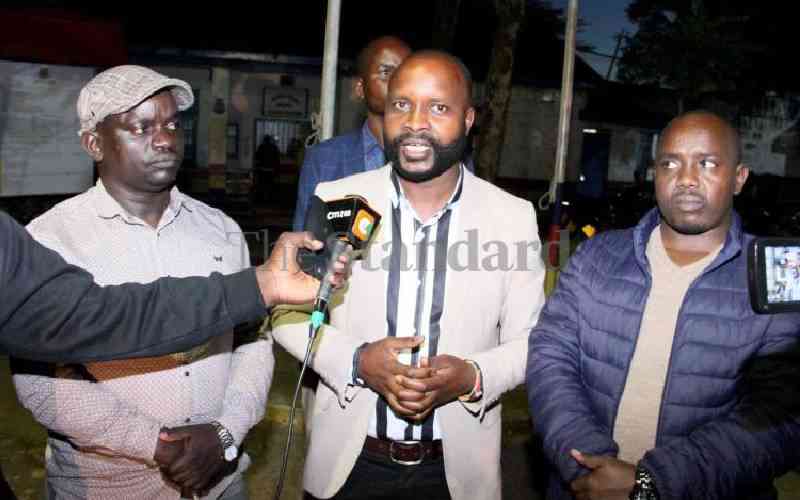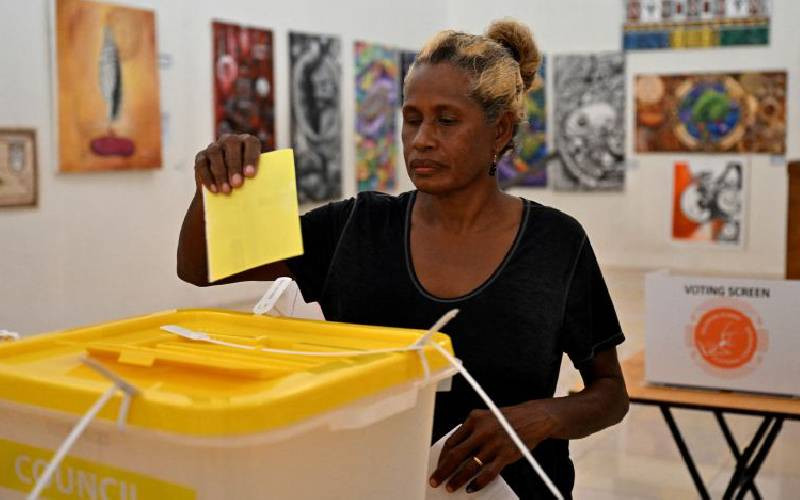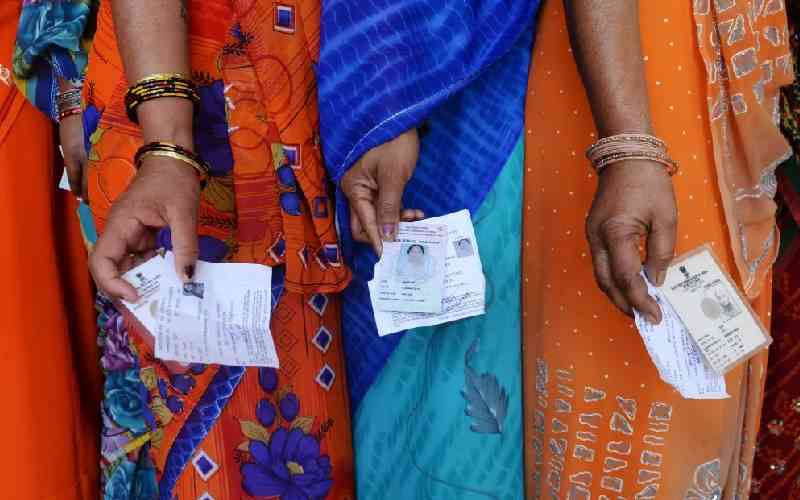Nigeria goes to the polls on February 16th. Already hordes of election tourists, camouflaged as observers, have descended on the country, with more arriving in the week. And another electoral circus begins. We can be fairly certain that all observer reports will start with praise for the Nigerian people for being “peaceful during election day….”
Africans are always praised for lining up calmly even as we know that voting has little meaning, and even though there has rarely been systematic violence—except by security forces—on any polling day in Africa. It is as if Africans are so atavistic that we deserve praise for lining up calmly, something that Americans, British, Swiss or Danes do routinely.
Even divided societies in Europe, with histories of violence and tensions—such as Hungary, Poland, Italy, Spain--are never subject to headlines about peaceful voting during their elections! The international community, with the connivance of domestic power brokers who are interested in maintaining status quo, has succeeded in reducing our expectations about governance, human rights and democracy; we now sing and dance even as elections are stolen and generations ahead condemned to chaos, debt, and servitude. For Africans, calm during voting is enough!
Don’t get me wrong: Peace is necessary. But it must not be enough for us. We should have the same standards and expectations around elections as people in Norway, Finland and Switzerland. And we should consciously upset a status quo—with tensions, dissent and protests--that keeps us at the bottom of the pile, poor and begging and with little hope for the future.
Be that as it may, it is almost crystal clear what the result in Nigeria will be. The signs have been broadcast, with the latest being the illegal firing of Chief Justice Walter Onnoghen for alleged corruption. Mr Onnoghen is no saint, and there are questions about his integrity, but the method and manner he was removed, and the person replacing him only adds to the speculation that Muhammadu Buhari is determined to ensure that there are no obstacles to his being declared and sworn in as president, no matter what the voters want or decide. Whether consciously or not, CJ Onnoghen’s other — and main — crime was to be perceived as opposed to Mr Buhari, and sympathetic to former President Goodluck Jonathan and the Opposition PDP party.
We Kenyans know this approach well, if we fight our amnesia and recall the brutal assassination of Chris Msando, the acting IT manager at the IEBC who was clearly the last obstacle to the election rigging that happened in 2017. Mr Msando’s “crime” was not perceived partisanship, however. It was too much integrity to play ball. We must never forget this crime and it must be punished, even if it takes 50 years.
Over the years, I have been struck by the similarities between Kenya and Nigeria, despite a few superficial differences. For instance, Nigeria was brutally led by military dictators who ruled with iron fists, and where change came only by coup. In Kenya at the time, we were firmly in the grip of civilian dictatorships that could do exactly what they wanted, and where elections were about being “elected” unopposed, or consistently stolen.
In both countries, corruption is a way of life, led by the very top whose idea of leadership is to loot as much as they can, allowing for trickle-down corruption in every aspect of life. Both countries are experts in “private solutions to public problems,” where rather than demand efficient public services, it is every person for themselves in avoiding pathetic public schools, dangerous public health systems, and unreliable power and security. The first armoured car I ever entered was in Nigeria in the 1990s. Then, Nigeria seemed ahead of us in graft tables, but this Jubilee regime makes even Nigerians shudder.
And because of the broken, corrupt and repressive governance in both countries, violent crime has been higher than in most of Africa. I have always been baffled by why crime and insecurity in Kenya and Nigeria, (and also South Africa) has been way higher than other African countries. It is not about the gap between the rich and poor alone, for every African country has serious inequalities, and also not only about impunity as this is also widespread in Africa.
Remi Adekoya writing in Foreign Policy says the Buhari regime “has serially ignored court orders, harassed and arrested journalists and activists, deployed security services to intimidate political opponents, and…sanctioned the killings of unarmed civilians…with the impunity of a power-drunk dictatorship.” Sounds a lot like Kenya since 2013! Some Nigerian friends lament that the worst part is that they know the serious health issues that Buhari faces, on display as he campaigns. The option of PDP’s Atiku Abubakar may not be better, given his party’s history in power.
Nigeria may flourish if politicians get it that they can be voted out after one term. But then again, this may be Nigeria’s version of our 2007 elections where hope from the previous fair election was quickly disabused.
- The writer is former KNCHR chair. [email protected]
 The Standard Group Plc is a
multi-media organization with investments in media platforms spanning newspaper
print operations, television, radio broadcasting, digital and online services. The
Standard Group is recognized as a leading multi-media house in Kenya with a key
influence in matters of national and international interest.
The Standard Group Plc is a
multi-media organization with investments in media platforms spanning newspaper
print operations, television, radio broadcasting, digital and online services. The
Standard Group is recognized as a leading multi-media house in Kenya with a key
influence in matters of national and international interest.
 The Standard Group Plc is a
multi-media organization with investments in media platforms spanning newspaper
print operations, television, radio broadcasting, digital and online services. The
Standard Group is recognized as a leading multi-media house in Kenya with a key
influence in matters of national and international interest.
The Standard Group Plc is a
multi-media organization with investments in media platforms spanning newspaper
print operations, television, radio broadcasting, digital and online services. The
Standard Group is recognized as a leading multi-media house in Kenya with a key
influence in matters of national and international interest.








